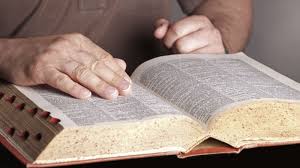 If you have only been exposed to Western Protestant religions, you won’t see too much in a Church of Scientology that you recognize as “church-like.” There is a little stained glass, but not much. There is no large hall where members gather, no hymnals and no pipe organ.
If you have only been exposed to Western Protestant religions, you won’t see too much in a Church of Scientology that you recognize as “church-like.” There is a little stained glass, but not much. There is no large hall where members gather, no hymnals and no pipe organ.
There is a weekly service and people do attend, but it is not the centerpiece of religious practice.
The practice of Scientology does not center around a deity. It has more in common with Buddhism, it is a path to enlightenment for the individual to travel.
Scientology attempts to answer the eternal questions that religion has always wrestled with. What is our essential nature? What happens when we die? Is there good in the world? Is there good in me? How about evil? The study of Scientology helps the person make sense of the universe for himself.
Religion normally provides a set of moral and ethical guidelines. Scientology gives its members the tools to decide how to conduct themselves in their daily lives. Most of us want to be a “good person,” but how do you go about this? How do you even define it? Those who study Scientology find a way to define what a “good person” is for themselves, and they find a way move towards being that good person.
Study is heavily emphasized and Scientologists do more of that than anything else. Scientology Churches have ministers. They “marry and bury” but the primary role of ministers is to counsel parishioners individually and help them remove blocks to understanding and awareness.
The end product of Scientology is an individual who understands more about himself and the world around him. He is able to bring a better life to himself, to those he cares about and the world at large.








